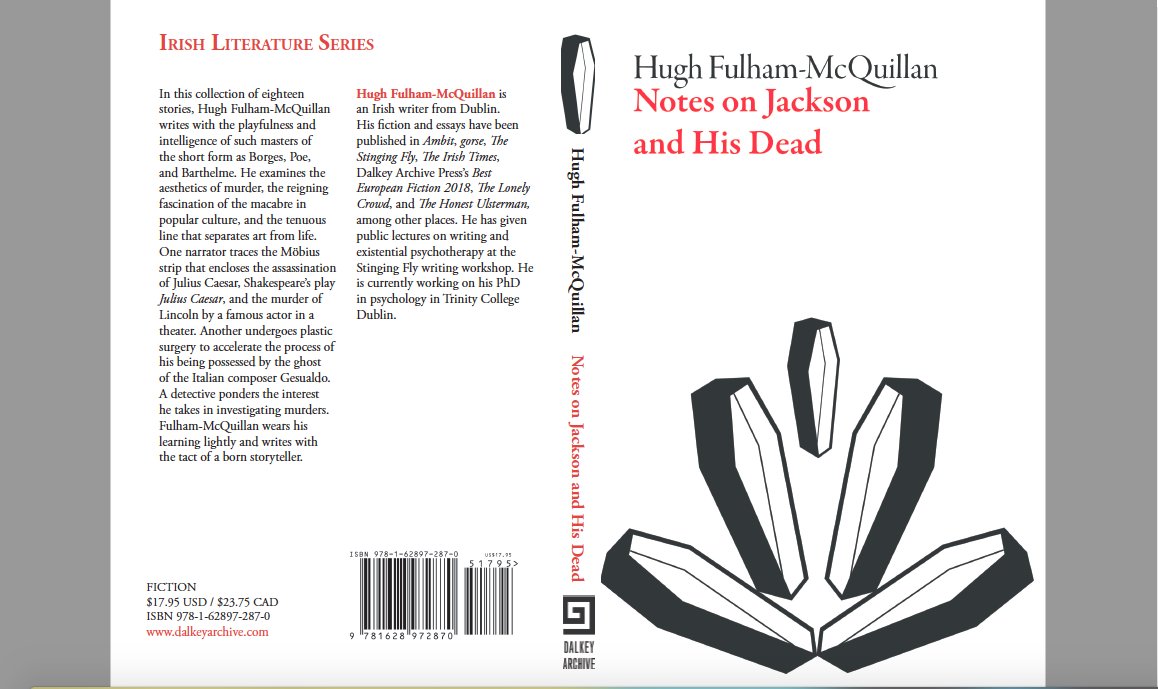
Hugh Fulham-McQuillan, Notes on Jackson and His Dead, Dalkey Archive Press, 2019.
excerpt
In this collection of eighteen stories, Hugh Fulham-McQuillan writes with the playfulness and intelligence of such masters of the short form as Borges, Poe, and Barthelme. He examines the aesthetics of murder, the reigning fascination of the macabre in popular culture, and the tenuous line that separates art from life. One narrator traces the Möbius strip that encloses the assassination of Julius Caesar, Shakespeare's play Julius Caesar, and the murder of Lincoln by a famous actor in a theater. Another undergoes plastic surgery to accelerate the process of his being possessed by the ghost of the Italian composer Gesualdo. A detective ponders the interest he takes in investigating murders. Fulham-McQuillan wears his learning lightly and writes with the tact of a born storyteller.
The narrator of Proust’s Remembrance of Things Past describes the involuntary triggering of a memory as though ‘the past is hidden somewhere outside the realm, beyond the reach of intellect, in some material object.’ Variations of this epistemological concept are present throughout Fulham-McQuillan’s eloquent debut collection. Characters in its eighteen stories often find themselves contemplating the worlds, histories, and stories that are hidden within, or just beyond material things – be they photographs, film, writing, or landscapes. In ‘Entrance to the Underworld’, a narrator listens to the sister of a man who has seemingly fallen down a sinkhole into hell and imagines his personality; ‘Spiral Mysterious’ sees a detective consider the role of an unexplained film in a murder investigation.
There’s a playfulness throughout in references to history and literature, and ‘Theme on the Character and the Actor’ – which places the assassination of Lincoln, Shakespeare’s Julius Caesar, and the historical event of Julius Caesar’s murder within a Möbius strip – offers an unexpected lesson. It’s clear why the author is compared to the likes of Poe: from the eerie tale of a man who gets rhinoplasty to look like a deceased Italian composer, to the titular story, in which a documentarian discusses the case of a man who leaves shells of himself in his wake, a sophisticated taste of the macabre endures. - Paulie Doyle
www.totallydublin.ie/more/print/book-review-notes-on-jackson-and-his-dead-hugh-fulham-mcquillan/

No comments:
Post a Comment
Note: Only a member of this blog may post a comment.